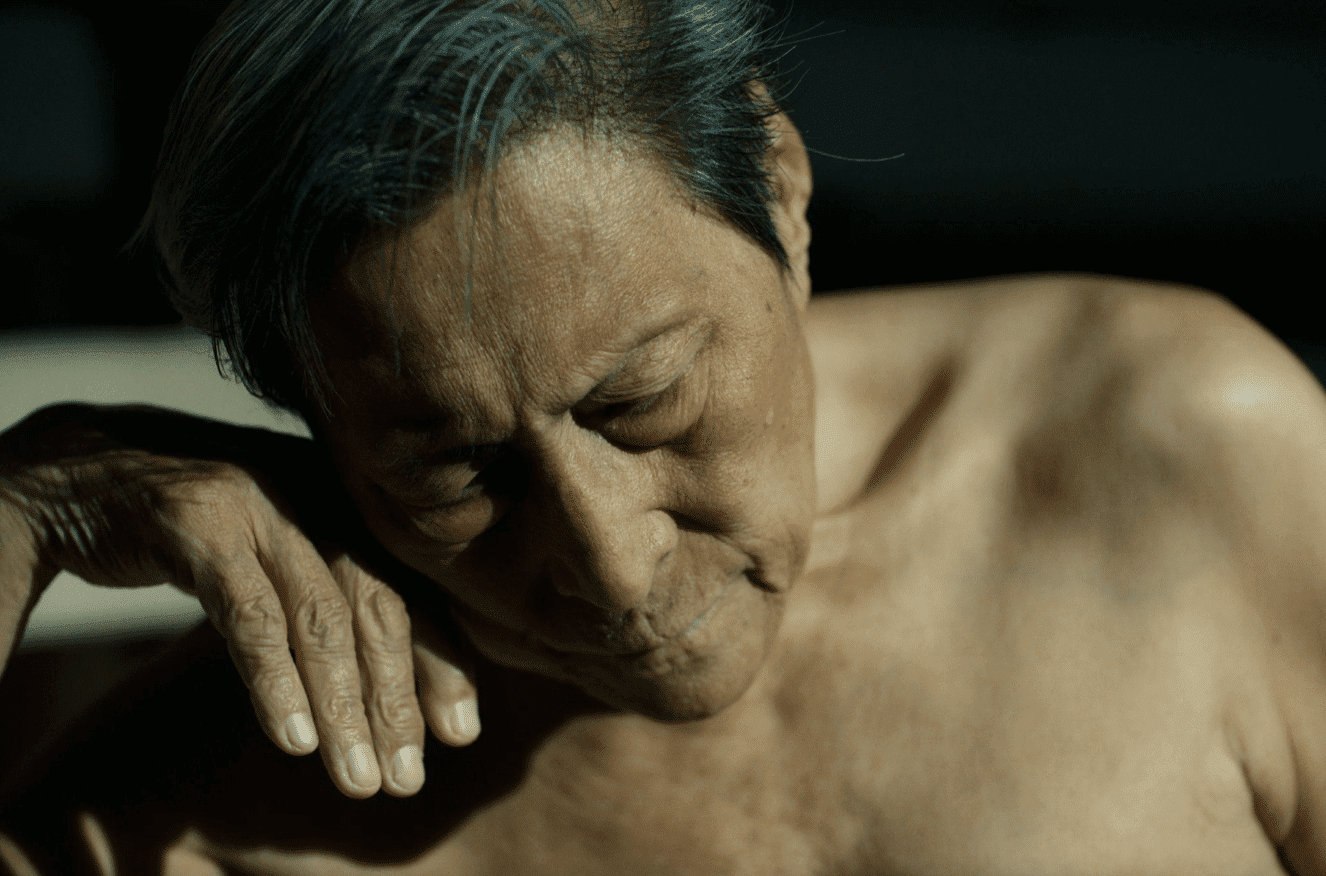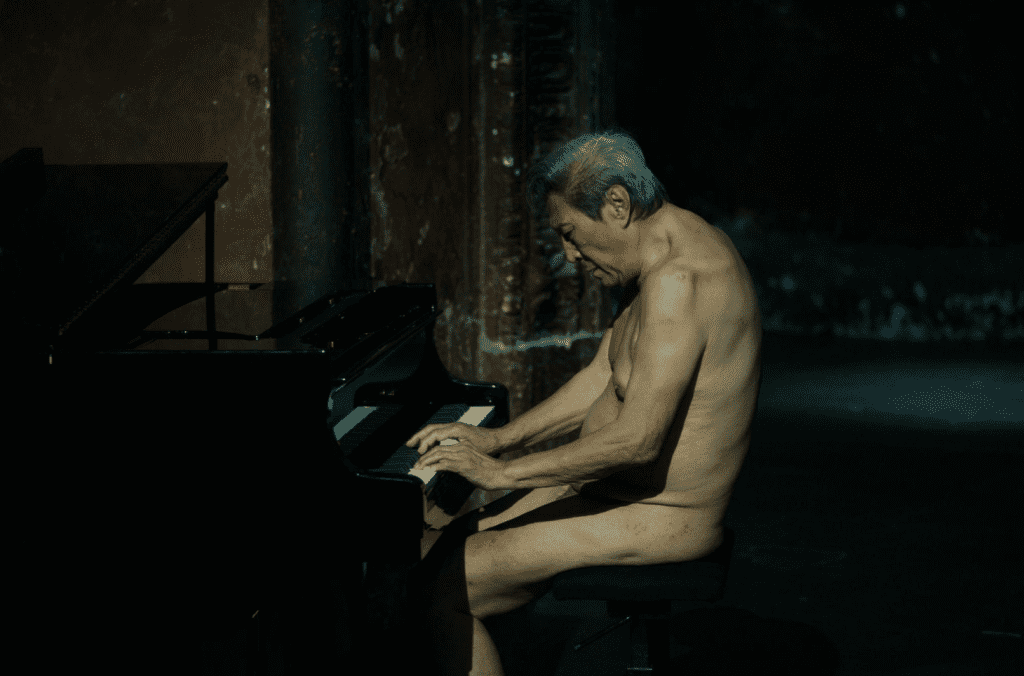
There are films you want to see — and there are films you should see.
For the Chinese documentarian Wang Bing, his works often sit squarely in the latter; covering the likes of prison camps, ordinary working-class citizens and state cruelty with such unflinching accuracy that his eighteen documentaries across modern China operate as historical treasure-troves for future generations. As pieces of cinema, it’s a grueling, traumatic, even exhibitionist experience; his first debut West of the Tracks lasted 9 hours, while The Ditch was singled out for an uninterrupted 15 minute wailing sequence.
Overshadowed this year by Wang Bing’s other release Youth (Spring) at Cannes, his newly released Man in Black lives confidently in the realms of movies you should see — but while there’s an uncompromising approach to realism, its ability to dip into the magical, even spiritual, elements of it’s portrait creates a harrowing beauty.

Elderly, nude, stately: Beijing’s great composer Wang Xilin emerges like a bit-part in a Beckett play, strolling down the staircase of the abandoned Bouffes du Nord Parisian theater to a ghostly stage—bowing to an empty pew with every fleshy detail hanging loose. After ten harrowing minutes of pacing and musical interlude, Wang Xilin sits and explains how he began his career: first as a member of the People’s Liberation Army, then a party-composer, a free-thinker, and finally, a political prisoner. His piano teacher was shot dead. He endured years of hard labour. His wife had a mental breakdown; he developed a ‘phobia for the color red’.
The plot is a welcome relief and words slip out of the naked composer with rising fury — almost therapeutically — as he describes putting these experiences into his political compositions. There’s the challenge of finding the right violin for the sound of searing flesh, the correct drums for the beating of a scream. It’s these instruments of torture he turns to music, and now, his banned opera plays over the empty stage while his naked body works itself into a sob. Suddenly the rest of his tale blurs between confession and music — a subtitled trauma that feels like cue cards for a silent film produced in Hell.
You’re at loss for your own words by this point. Movement, the director explains to us later, is totally unscripted. It’s a turning-point that’s never grabbed me so powerfully, or left me so frayed while Wang Xilin continues to pour out every expression that flows through his head. You might guffaw at how cerebral some cinema has become; but you’d never survive this film with a nerve intact. With director Wang calling it, sweetly, a ‘gift’ to Wang Xilin and his survival, Man in Black has all the beauty of a broken instrument. It’s a lyrical, miniature epic to China’s political violence, but also a work of genius: plucking at the heartstrings of a composer and his manic fight for humanity. Like a cursed fugue — you’ll find snippets of his music floating deep in your mind long after the film’s close.



